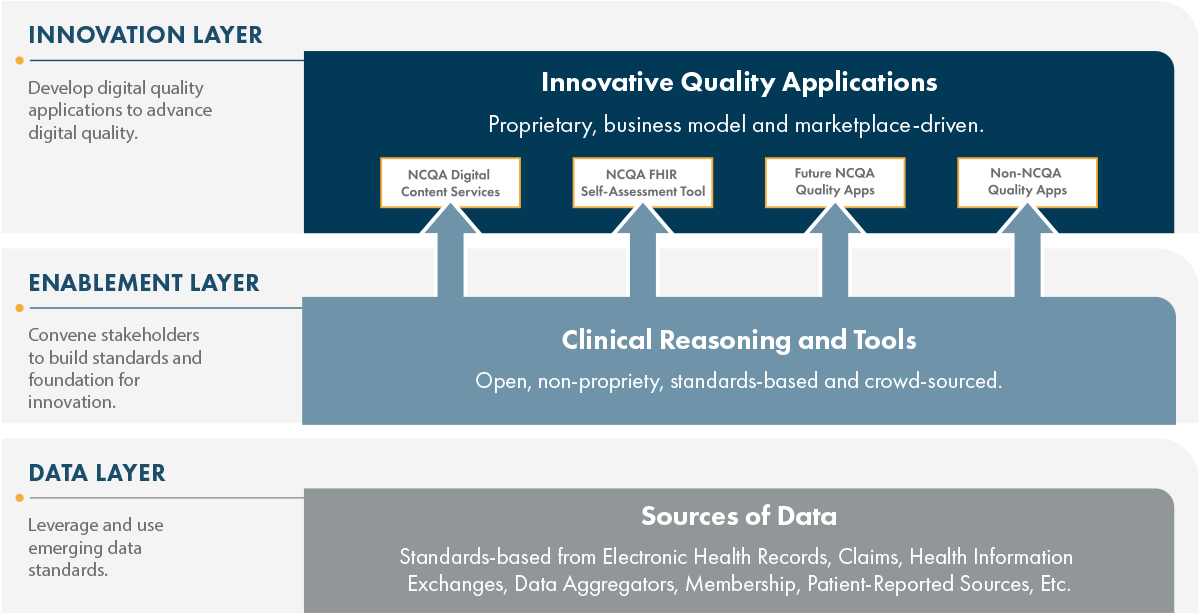What is CQL or Clinical Quality Language?
The Clinical Quality Language (CQL) specification, an open-source standard published by HL7, defines a high-level domain specific language that allows a human-readable description of clinical quality logic to express clinical knowledge. The specification also defines a machine-readable, canonical representation called the Expression Logic Model (ELM) which is rendered from the authored CQL to allow for sharing of that clinical knowledge and logic in a way that is verifiable and computable. ELM serves as input to language processing applications such as transition, tooling and execution/calculation engines.
What is a CQL Execution or Calculation Engine?
A CQL Engine is an implementation of the CQL specification that has the capability to execute clinical quality logic. A properly implemented CQL engine can ‘run’ the ELM rendering of any CQL that is authored according to the same specification.
Implementations may vary, however, with differences in which versions of CQL are supported, whether or not all of the CQL syntax is supported and how well they are suited for different uses and requirements (e.g. volume, throughput, latency, required computing resources).
Three layers to support all aspects of digital quality.
- Applications/Content Layer
- Marketplace and business use case driven, digital quality applications that leverage standardized layers below to deliver innovative and scalable solutions.
- – Example applications include NCQA Digital Content Services.
- Infrastructure/Enablement Layer
- Open, non-proprietary, standards-based clinical reasoning tools and platforms that execute specific prioritized quality use cases (e.g. HEDIS, eCQMs) consistently, unambiguously and without gaps, while consuming and producing results as standardized, structured data.
- Examples are execution engines from Smile, Mitre and, Firely.
- Data Layer
- Leverages mandated and industry adopted standardized and structured data from sources including EHR/EMR systems, health plans, HIEs/HINs, registries and patient applications.
- Examples of data standards are US Core FHIR Implementation Guide (IG), CARIN Blue-Button FHIR IG and HL7’s DaVinci FHIR IGs for various use case.

Why Did NCQA select CQL as the standard for digital quality?
- It is a healthcare and quality specific, standards-based declarative language developed for quality measurement and clinical reasoning – a great fit for digitizing Quality content.
- It is capable of incorporating data models like FHIR as well as code and other CQL Libraries for common subroutines for consistent and easy use of common values and functions.
- The CMS Digital Quality Measurement Strategic Roadmap aligns with the CQL specification for Measure Calculation Tools (publicly funded and privately developed MCTs share a core set of tooling such as the CQL engine) and for EHRs reporting eCQMs (the logic needed to evaluate a provider or organization’s performance is expressed using CQL)
- Measure authors can use the CMS Measure Authoring Tool (MAT) to author eCQMs and the CMS Bonnie tool to test eCQMs, using CQL.
- Healthcare facilities can use FHIR APIs to report digital quality measures (dQMs) defined using CQL to CDC’s National Healthcare Safety Network (NHSN). The NHSN dQM definition aligns with the CMS dQM definition in the CMS Digital Quality Measurement Strategic Roadmap.
- The FHIR Data model is a great complement as it is evolving as a mandated and universally used data model for clinical data and it overcomes limitations of prior data models, enabling NCQA to create a complete roadmap for migrating HEDIS measures to dQMs and to develop new, better digital measures on a foundation of rich standardized structured clinical data.
- It allows NCQA to create a model for other measure programs and drive the industry-wide adoption of digital quality – only when all programs use one standard for execution logic and one standard for data, will we realize the full benefits of digital quality.
What is the Digital Quality Implementers Community
For organizations interested in building, maintaining or enhancing CQL engines that support quality use cases, NCQA has established the Digital Quality Implementers Community to create consistency and confidence in the implementation of CQL standards .
The Digital Quality Implementers Community, spearheaded by the National Committee for Quality Assurance (NCQA), is a collaborative effort aimed at fostering the development and standardization of digital quality measurement tools and platforms. Initially focusing on creating a developer community for vendors involved in Clinical Quality Language (CQL) engines, the Community plans to expand its scope to include additional tools, developers, and programming languages in the digital quality sector. Primary objectives include establishing standards, developing validation tools, implementing a governing model, crafting a communications strategy, and creating a federal advocacy plan. The community will focus on evolving existing CQL platforms to enable Digital Quality Measurement, ensuring consistency and innovation.
Why is the Digital Implementers Community Important
- Standardization and Consistency
- Innovation & Adoption
- Addressing Implementation Challenges
- Validation & Quality Assurance
- Community Governance
- Communication and Advocacy
- Consensus Building
- Scalability




